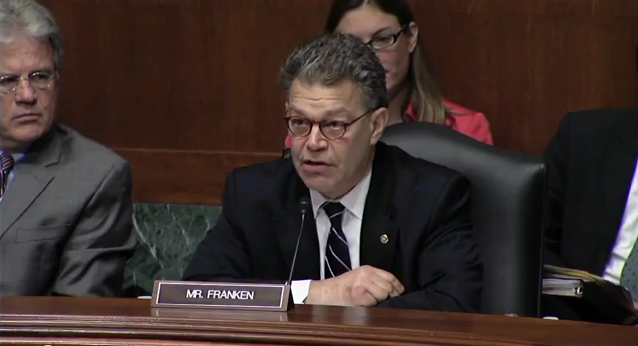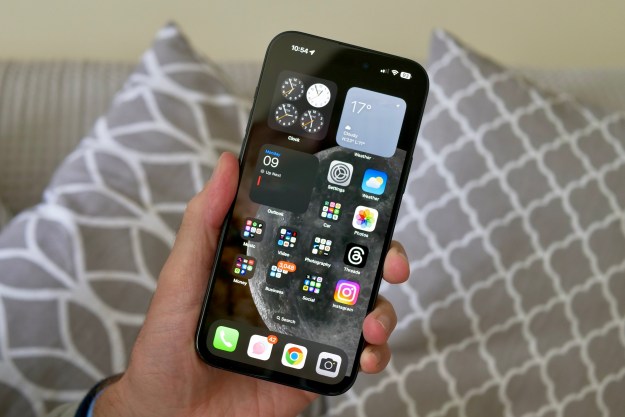 Sen Al Franken (D-MN) and other members of the Senate Judiciary Subcommittee on Privacy, Technology and the Law took Apple and Google to task on Tuesday for the companies’ collection of mobile users’ location data. While nothing definitive was accomplished, the hearing provided another opportunity to learn more about why the two tech companies collect user location data, and what exactly they are collecting.
Sen Al Franken (D-MN) and other members of the Senate Judiciary Subcommittee on Privacy, Technology and the Law took Apple and Google to task on Tuesday for the companies’ collection of mobile users’ location data. While nothing definitive was accomplished, the hearing provided another opportunity to learn more about why the two tech companies collect user location data, and what exactly they are collecting.
To kick off the hearing, Sen. Franken parsed the official Apple line that the company does not “track” users’ locations. Instead, Apple says that its iOS mobile software merely keeps detailed logs of every Wi-Fi hotspot and cell tower to which an iPhone connects — information that Apple admits is used to help quickly pinpoint a phone’s location without the help of GPS.
“It doesn’t appear to me that both of these statements could be true at the same time,” said Sen. Franken to Apple Vice President of Software Technology Guy “Bud” Tribble, who was representing the Cupertino, California-based company. In other words, said Sen. Franked, “Does this data indicate anything about your location or doesn’t it?”
Tribble responded to Sen. Franken’s question by re-emphasizing Apple’s assertions that the location information collected is about Wi-Fi hotspots and cell towers exclusively, and does not “contain any customer information at all.”
“The data that’s stored in the database is the location of as many WiFi hotspots and cell phone towers as we can have. That data does not actually contain any customer information at all; it’s completely anonymous. It’s only about the cell towers and WiFi hotspots,” Tribble said. “When a portion of that database is downloaded onto your phone, your phone also knows which hotspots and cell phone towers it can receive right now. So a combination of the database and your phone knowing what it can receive right now is how the phone figures out where it is without the GPS.”
Tribble took an effective defensive approach to further back Apple’s position, saying that the company does not share private user data with third-party vendors without explicit user consent, and explained that users can choose to turn on or off their iPhone’s location-sharing feature as they please. In essence, Apple’s stance was: users’ privacy is a deeply respected thing, and we as a company run a tightly-controlled mobile ecosystem that keeps sensitive data safe.
In Google‘s corner was Google Director of Public Policy Alan Davidson, who re-stated Google’s stance that all location services on devices that run its Android mobile OS are opt-in only, and that no user data is sent to Google without consent from the user. Davidson touted Google’s policy of “openness,” as compared to the tightly curated ways of Apple.
The senators appeared far less impressed by Google’s almost-anything-goes attitude toward the Android Market and its control over app developers. Unlike Apple, which puts restrictive policies in place supposedly to protect users, Google essentially gives customers a large portion of responsibility for keeping their private data safe.
On a variety of occasions, senators strayed from the agenda to simply lambaste Apple and Google for grievances about topics that have nothing to do with mobile privacy, like an app in the App Store that alerts users to police checkpoints, which could theoretically be used to avoid getting caught drinking and driving.
“You’ve pulled one [app] that has tasteless jokes,” said Sen. Charles Schumer (D-NY). “This is worse than that, don’t you think?”
“If [apps] intend to encourage people to break the law,” said Tribble, “our policy is to pull them off the store.”
Watch a portion of the hearing below:
Editors' Recommendations
- Here’s how Apple could change your iPhone forever
- 10 iPhone productivity apps you need to download right now
- This one thing could make iOS 18 the best iPhone update in years
- When will Apple release iOS 18? Here’s what we know
- Everything you need to know about the massive Apple App Store outage


